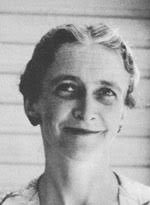I was awakened by feminine shrieks of delight and men’s cries of “Hooray!” Little Walter came rushing in calling to his mother, “Mummie, come, come! Do you want to see a real live Marine? They are here.” I was too worn down to go out and join the crowd, so I just rested there letting the tears run down and listening to the American boys’ voices—Southern, Western, Eastern accents—with bursts of laughter from our internees—laughter free and joyous with a note in it not heard in three years. I drifted into peaceful oblivion, wakening later amid mosquitoes and perspiration to listen to the rat-a-tat-tats, booms, clatter of shrapnel, explosions of ammunition dumps, seeing scarlet glare in every direction. There is battle all around us right up to the walls; two great armies locked in death grip. Today we watched flames leap and roar over at the Far Eastern University building just two blocks away. It is the Japanese Intelligence and Military Police Headquarters. The building was peppered with bullet holes Sunday morning, and a dead soldier is slumped out half across the window sill of an open window.
George Wood gave Jerry some cigarettes and from then on there was no more saving of stubs, for the boys showered their rations on us. George gave us three K-type ration boxes and four C or No. 2 type, containing crackers, a tin of cheese with bacon, a candy bar, four cigarettes in a small box, a piece of gum, and four packages of powdered citrus juice. Oh boy, oh boy, oh boy was all we could say, over and over.
George had come up from Guadalcanal, Bougainville, Munda, and tore down with the first group from Lingayen. Three groups were converging, all trying to get to Manila first, in a terrific rivalry! They didn’t expect to find us alive and were racing with time to catch us before anything happened. The officers knew that we internees and the American soldiers were in Bilibid, but the enlisted men did not. They were just looking for a place to spend the night when they started breaking down the barricade at our front gate. Major Wilson and Carl and some others began to hack it down from inside, and when the soldiers heard this they thought it was Nipponese inside and put their hands on their rifles all ready to mow us down. They called out, “We order you to surrender!” and our men cried out, “We can’t. We are American Prisoners of War in here.” The answer from the outside was, “The hell you are! Not now—we’re here!” And they broke the door barricade and came in laughing with relief at finding us alive and not having to shoot their way through a nest of Japanese. There were not many dry eyes among our men, who were laughing with relief too. Some of them said that Tokyo had said over the radio that they would take us out and shoot us and this started their rush to Manila for a quick rescue. It worked, for they came through ahead of expectation or communication.
Our old friend George was only the first—for we have seen thousands now: huge, husky men, almost overpowering in their health and energy. They have such an American look in their eyes, even when tired from lack of sleep. It is a forward, eager, hopeful look—above all, secure and well fed.
After hunger, saving, scrimping, worrying, no news, the only kindness shown us required to be hidden from those high up, to emerge into all kinds of news, boys heaping kindness and attention on us, food in every direction, new avenues of life opening every hour—the mental and spiritual chaos is beyond expression. Like a rush of waves, a mighty sea breaks in and we swallow huge gulps of efficiency and freedom that leave us breathless and gasping on a new shore.
(This is the last entry as published in American Heritage)
